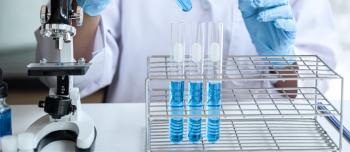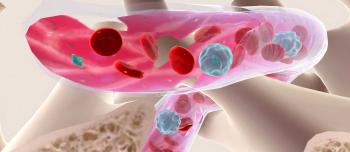The Chicago-based pharmaceutical company Abbott Laboratories announced last month preliminary results of a phase IIb (mid-stage) study designed to test the efficacy of an oral three-drug combination therapy to suppress the hepatitis C virus (HCV).
The standard of treatment for HCV combines weekly injections of pegylated interferon and a daily ribavirin oral pill. However, that regimen is not ideal as nearly 50% of patients do not respond to it. Further, those who do often experience debilitating side effects that can last the duration of the treatment—either 24 or 48 weeks. In contrast, the new study known as “Aviator,” does not include interferon. Instead, it involves three experimental HCV drugs developed by Abbott: ABT-450 (protease inhibitor), ABT-267 (NS5A inhibitor) and ABT-333 (non-nucleoside NS5B inhibitor).
The purpose of the trial was to measure multiple combinations of the drugs for varying durations for up to 24 weeks of treatment in both patients who had undergone prior treatment and those never before treated. Success of these combinations was measured by each patient’s ability to “clear” the virus by achieving a sustained virological response (SVR) for at least six months after completing therapy. SVR is achieved when viral levels drop, becoming nearly undetectable. Investigators tracked how many patients had achieved SVR 12 weeks (SVR12) after the end of the therapy.
The regimen with the highest SVR12 rates included ABT-450 with ritonavir (HIV protease inhibitor), ABT-267, ABT-333 plus ribavirin for 12 weeks. The regimen led to an SVR12 rate of 99% in 77 previously untreated patients and 93% among 41 patients who had been treated before but responded poorly to interferon injections. Approximately 1% of patients had to stop the therapy because of fatigue and headaches.
“Based on the promising results we’ve seen, Abbott has selected a triple direct acting antiviral regimen, with and without ribavirin for phase III development,” said Scott Brun, MD, divisional vice president, Infectious Disease Development, Abbott. “The ability to show sustained virological response in these patient populations, without the use of interferon, is extremely encouraging.”
The complete results from phase 2b of Aviator will be presented at the Annual Meeting of the American Association for the Study of Liver Disease (AASLD) in Boston, November 9-13, 2012.
Abbott will follow up by testing this regimen with and without ribavirin in Phase III (late stage), clinical trials. One of the trials will be unique in that ABT-450, ritonavir and ABT-267 will be “co-formulated” into a single pill, reducing the pill count from that of the phase II study.
Source: The Wall Street Journal and Abbott press release, both dated October 15, 2012





